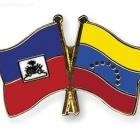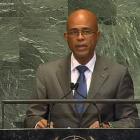ADVERTISEMENT
Debt
Haitian Embassy evicted in Pretoria for Rent Non-Payment
Here is a picture of the Haitian Embassy in Pretoria South Africa as possessions of the property were taken to a storage after a judge had had ordered the local sheriff to remove the belonging.
The order was issued this Friday and the eviction procedure took place on Friday as well.
On July 18th, Judge Janse van Nieuwenhuizen of the Pretoria High Court has given an attachment order under the principle of "tacit hypothec", to attach all the moveable properties of the Haitian embassy in Waterkloof, in Pretoria for non-payment of rent for 10 months aggregating US$44,265 (South African Rand 550,500). When as per the court order, the local Sheriff accompanying his men arrived at the embassy and started loading a truck with furniture of the embassy, they were stopped by the embassy staff who argued that their property cannot be attached as they enjoy diplomatic immunity. Earlier, the staff had called the Diplomatic Police and had informed that an armed robbery is taking place in the embassy premises. When the Diplomatic police arrived at the spot, they found none other than the Sheriff and his men. However, the embassy staff were informed by the landlord's legal representative that diplomatic immunity is not available on commercial transactions like rent payment.
The Embassy was located at:
826 - 830 Government Avenue
Eastwood, Pretoria. 0083
Gauteng - South Africa
We have a moral not financial debt to Haiti, François Hollande
Look at this picture. French government has a big load hanging on top of country. It is the Haiti debt that it owes and it involves restitution for the money the young nation was obligated to pay to France after they fought for their independence. Ironically, French president François Hollande who visited Haiti in May, 2015 stated that We have a moral not financial debt to Haiti".
Two hundred years ago, when Haiti became the first independent black republic after defeating the army of then French Monarchy, it vowed to pay the French ruler, King Charles X an "independence debt of 90 million gold coins". The extorted bounty was distributed among the white slave owners for the loss of "property" they claim to have suffered as a result of the abolitionist Haitian Revolution. Thus, the country was forced to pay most of its national wealth to the French for own freedom. This barbaric ransom was collected between 1825 and 1947 through a French ordinance that threatened to re-enslave self-liberated Africans. This could be a good reason for present suffering of the country. As per 2003 estimate, the Haitian President Jean-Bertrand Aristide demanded $22 billion from France as the cost of restitution. On Saturday, May 9th, during the inauguration of the Caribbean Centre of Expressions and Memory of Trafficking and Slavery (ACTE) in Pointe-à- Pitre, Guadeloupe, the French President François Hollande had said that "in Haiti, I will pay the debt we have." Although his announcement received a rousing applause from the audience, but according to the French National Palace, nowhere he had mentioned that France would be repaying the Haitian independence ransom of $23 billion (at present value). His statement indicating moral debt only without mentioning any monetary value was criticized in Haiti because the collection of the ransom for independence is undoubtedly an act of immoral and illegal turpitude.
Francois Hollande Haiti and restitution for independence debt
Here is a view of a group of Haitians who were not so happy with the visit of Francois Hollande in Haiti in May, 2015.
French President says No to Reparations for Haiti
French President Hollande made a visit to Haiti recently. President Martelly glossed over France's unwillingness to pay reparations, readily accepting the $145 million in infrastructure projects from them.
Protestors are frustrated Hollande, like other presidents of France, say it owes ". . . only . . . a moral debt . . . not financial compensation."
France forced Haiti to pay $21 billion for an "independence debt" to guarantee its freedom in 1804.
Francois Hollande in Haiti protesters demand reparations
Here is a picture of some group of Haitian protesters demanding reparations during a visit of Francois Hollande in in Haiti.
When Hollande and Martelly arrived at Champ de Mars to honor heroes of the Haitian revolution with a wreath-laying, 200 demonstrators came to voice their opinions on France's part in ruining Haiti's economy. Until the mid-20th century Haiti labored to retire the debt, but $77 million was still owing. France forgave the balance after Haiti's 2010 earthquake.
Haiti is not France's only victim of blackmail. But Martelly understands if France pays reparations to Haiti, France would be pressured to recompense other countries it has stolen from. Martelly told Hollande ". . . no compensation can repair the wounds of history . . . . Haiti has not forgotten, but Haiti is not stubborn."
Francois Hollande to handle debt to Haiti without financial reparations
French President Francois Hollande made a surprising statement n regard to the debt to Haiti on his way to Haiti. At the inauguration of a memorial for slavery in Guadeloupe on Sunday, May 10, 2015, he evokes France's 'Debt' To Haiti, but refused to admit that France will pay back the money owed.
Pressure has been mounting on France to pay back the money it has asked Haiti to pay after Haiti's independence. Some believe that this obligation on the new republic after its independence is a major factor in the poverty of te island. In 2013, Francois Hollande evoked France's "debt" toward Africa. In 2010, President Nicolas Sarkozy became the first French seating president to visit Haiti in the aftermath of the earthquake.
Over 200 years ago, when Haiti became the first black independent Republic of the world after defeating the army of then French Monarchy, it agreed to pay France an "independence debt. In 1825, the French ruler, King Charles X agreed to recognize Haiti's independence after 14 years of bloody battles on condition that the new Black Republic will pay 150 million gold francs in ransom. It was later reduced to 90 million gold coins and the extorted bounty was distributed to the white slave holders for the loss of "property" they claim to have suffered as a result of the abolitionist Haitian Revolution. Haitians believe that it could be a big reason for Haiti's present suffering because the country was forced to pay most of its wealth to France for own freedom. Between the years 1825 and 1947 (140 years after the abolition of the slave trade), this barbaric and illegal ransom was collected through violent means with an official French ordinance which threatened to re-enslave the self-liberated Africans. On April 7, 2003, the value of the infamous Charles X ransom was estimated at around $22 billion by the Haitian President Jean-Bertrand Aristide and he demanded its restitution. For most Haitians, the recent visit of the French President François Hollande to encourage investment is reminding them how their ancestors were punished by the French and forced to pay a big price for country's successful slave revolt for independence.

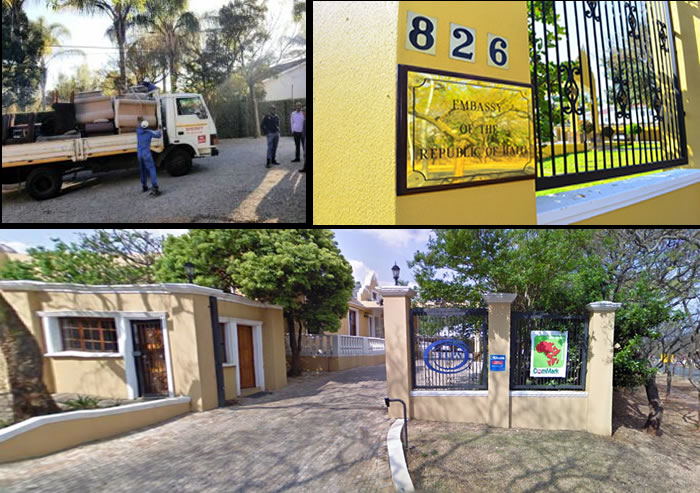
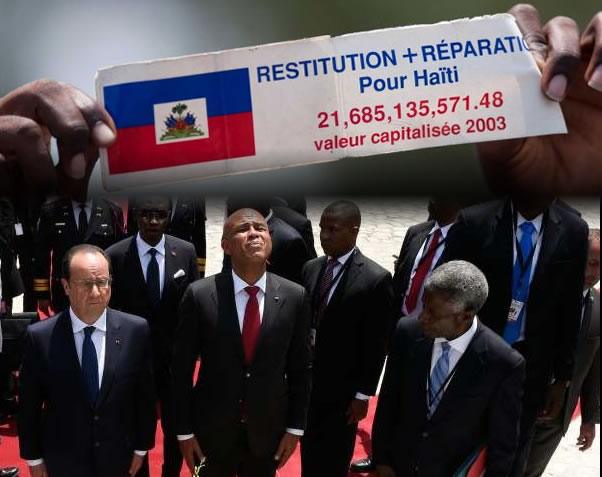
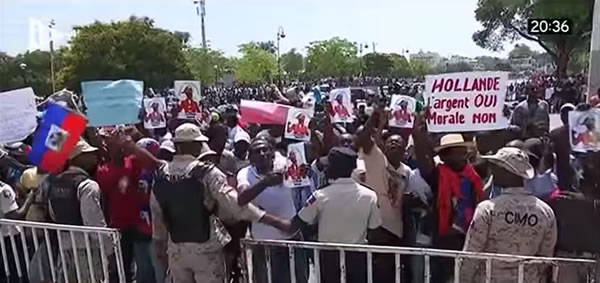
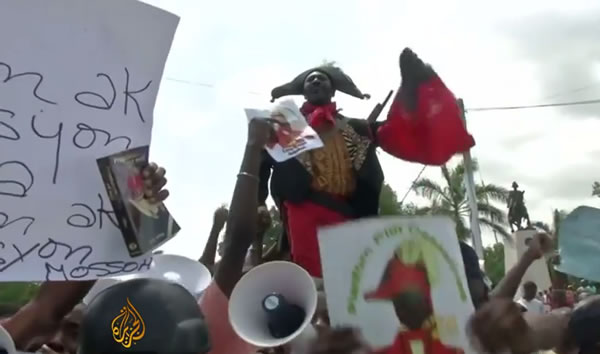
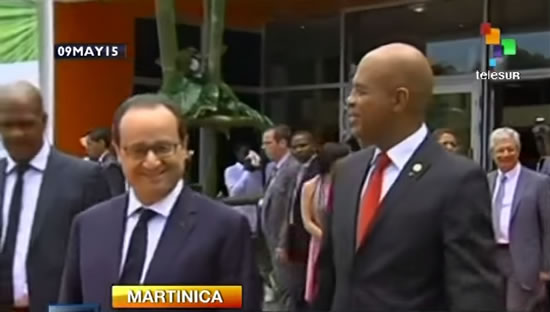
 Histoire D'Haiti
Histoire D'Haiti  Lumane Casimir And Songs
Lumane Casimir And Songs  Luc Desir Was A Member Of Francois Duvalier And Jean-Claude...
Luc Desir Was A Member Of Francois Duvalier And Jean-Claude... 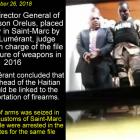 Former PNH Chief, Godson Orelus, arrested for illegal arm...
Former PNH Chief, Godson Orelus, arrested for illegal arm...  Haitians, the second largest black immigrant group in the US
Haitians, the second largest black immigrant group in the US 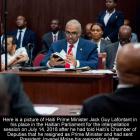 Jack Guy Lafontant resigns as Haiti Prime Minister
Jack Guy Lafontant resigns as Haiti Prime Minister  Haitiano-Japanese Naomi Osaka wins the US Open against Serena...
Haitiano-Japanese Naomi Osaka wins the US Open against Serena... 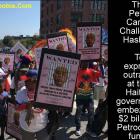 The Petro Caribe Challenge hashtag
The Petro Caribe Challenge hashtag 